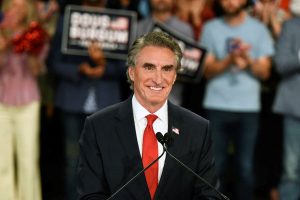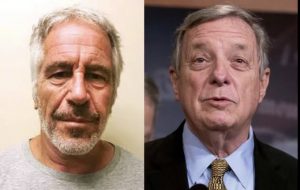Pranab Mukherjee, often referred to as ‘Mr Dependable of the Congress’, did not have a smooth ride in the party, but his dedication to the party that he inherited from his father was undeterred in the face of success, and the setbacks too.
In 1978 when the Congress split into two factions – Indira Gandhi-led Congress (I) and then Karnataka CM D Devraj Urs-led-Congress (U), – Mukherjee was one of the few who sided with Gandhi, prime minister of India in 1966–77 and 1980–84.
Also Read | Pranab Mukherjee brought the President closer to the masses during his stint
And the reason he chose to stand by Indira Gandhi was an “advice” from his father, Kamada Kinkar Mukherjee, a staunch Congress loyalist.
“He told me: ‘I hope you will not do anything that will make me ashamed of you. It is when you stand by a person in his or her hour of crisis that you reveal your own humanity,’” he wrote in his book “The Dramatic Decade – The Indira Gandhi Years”
He added that “his meaning was clear, and I didn’t then or later waver from my loyalty to Indira Gandhi”. Pranab Mukherjee supported every move of hers even when she was being heavily attacked for declaring Emergency in 1975, and the criticism that followed the two turbulent years in the history fo Indian democracy.
Pranab Mukherjee: Some little known facts about the Former India president
Mukherjee began his political career in 1969 as a 34-year-old Rajya Sabha MP of Bangla Congress, a faction of the party that soon merged into the Congress and then swiftly rose up the political ladder under the tutelage of Gandhi.
Mukherjee was appointed as deputy in various ministries like shipping and industrial development. But it was only in 1982 that he got his first big break when he was appointed as Union finance minister. By 1984, he was among the key leaders in the Congress, who Indira Gandhi had ears for.
The tables, however, turned after the assassination of Indira Gandhi in 1984. Mukherjee, who most people thought was the next in line for the top post, was sidelined and Rajiv Gandhi took over as prime minister. This, he said, was done in consultation with Mukherjee.
Also Read | Pranab Mukherjee the author laid bare his political life with these books
Mukherjee, in his book “The Turbulent Years: 1980-96”, rejected the “false and spiteful” stories that he aspired to be the Prime Minister after Indira Gandhi’s assassination and said that it was him who convinced him to take up the top post.
Rajiv Gandhi, he said in his book, asked him “Do you think I can manage?”
His answer, “‘Yes,’ I told him, ‘we are all there to help you. You will have everyone’s support.’”
Two months later, however, Mukherjee received his strongest blow. In the parliamentary elections that were held in December 1984, Congress emerged victorious with a massive 414 seats in its kitty but when the cabinet was announced, Pranab Mukherjee’s name was missing.
“I kept waiting for the call. Being dropped from Rajiv’s Cabinet was not even peripherally in my mind. I had heard no rumours… When I learnt of my ouster from the Cabinet, I was shell-shocked and flabbergasted. I could not believe it,” Mukherjee recounts that day in his book The Turbulent Years 1980-1996.
The tough times continued, and in 1986, he was also dropped from the Congress Working Committee. In Mukherjee’s own words, it “was a blow which hurt even more than being dropped from the Cabinet”.
The same year, Mukherjee was expelled from the party over an interview that was allegedly “anti-party’.
Clarifying his position, Mukherjee wrote, “There was nothing objectionable in any of the responses… the magazine talked about my popularity ratings improving in comparison to Rajiv’s, my growing power base, and so on,” the former president said in his book.
Pranab Mukherjee: He regaled journalists but scared them too
Speculating upon the reasons for his expulsion, Mukherjee had written, “He [Rajiv] made mistakes and so did I. He let others influence him and listened to their calumnies against me. I let my frustration overtake my patience.”
Mukherjee, briefly launched his own party Rashtriya Samajwadi Congress (RSC) in the early 1987 but had merged his group back into the Congress in 1989 after reconciliation with Rajiv Gandhi.
For this hardcore congressmen, turn of events happened again in 1991 when, after Rajiv Gandhi was assassinated, PV Narasimha Rao took leadership of Congress and, after the party’s success in parliamentary elections, was named prime minister. Since then, till he gave up all party posts when he became the President of India, Mukherjee held most of the major ministerial portfolios in both in Narsimha Rao cabinet and then Manmohan Singh cabinet in 2004. He held commerce ministry from 1993–1995, external affairs from 1995–1996 and 2006–2009, defence 2004–2006, and finally back to finance in 2009 till 2012. He also occupied several important legislative posts, including leader of the Rajya Sabha (1980–84), Congress Party whip in the upper house (1996–2004), and leader of the Lok Sabha (2004–12).
In June 2012, Pranab Mukherjee was elected the President of India and he gave up all party posts and cabinet because the office is nonpartisan.
Pranab Mukherjee, who died on Monday was one of those rare politicians who was respected across the party lines and was fondly called ‘man of all seasons’.






